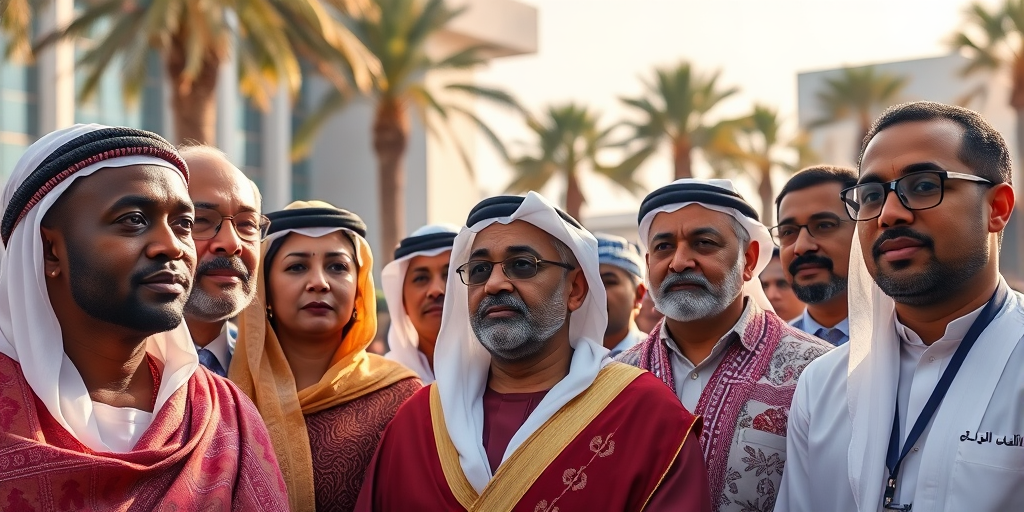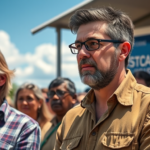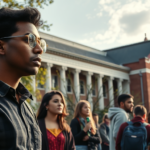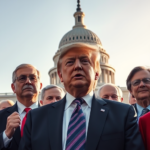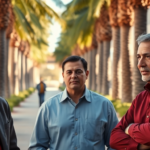Global Call to Action: Doha Summit Emphasizes Social Justice as a Fundamental Right
The Second World Summit for Social Development, hosted in Doha, emerged as a pivotal platform for fostering international dialogue centered on embedding social justice into global policy frameworks. Against the backdrop of the newly adopted Doha Political Declaration, leaders, organizations, and stakeholders from around the globe convened to accelerate strategies targeting poverty eradication, social inclusion, and decent work.
Summit’s Objectives and the Doha Declaration
The summit, part of the Global Coalition for Social Justice Forum, gathered a diverse roster of participants, including ministers, worker and employer organizations, UN agencies, and civil society groups. The gathering underscored the urgency to push forward coordinated actions in closing global inequalities and strengthening social protections, emblematic of the existing progress marked by improved metrics in education, life expectancy, and gender equality. Nonetheless, systemic challenges such as discrimination, workplace exclusion, and rights violations persist deeply rooted in various regions, highlighting the complexity of bridging these divides.
With a resonant voice, Annalena Baerbock, President of the UN General Assembly, articulated that social justice transcends being an aspirational vision, solidifying its status as an unequivocal right. She spotlighted entrenched inequalities, urging the dismantling of systemic barriers impeding justice for all. Baerbock emphatically stated: “We have to ensure that we end these injustices once and for all,” underscoring the imperative to graduate these discussions from conceptual aspirations to actionable policy initiatives.
Regional Reflections: Asia and the Pacific
Focusing regionally, the summit spotlighted Asia and the Pacific. Despite witnessing substantial poverty reduction, these areas encounter persistent challenges with inequality, aging demographics, and climate-induced vulnerabilities. Srinivas Tata from the UN Economic and Social Commission for Asia and the Pacific emphasized the transformational potential of social protection systems. Tata articulated, “It demonstrates that social protection is not a cost…it is an investment.”
This perspective underscores the dual role of social protection as both a safety net and a developmental tool, a sentiment echoed by stakeholders seeking to leverage policy frameworks that prioritize inclusive growth and sustainable development.
Social Justice in Action: Implementing Human Rights Principles
In parallel, the UN human rights office, OHCHR, reinforced the integration of social protection efforts within the framework of universal human rights principles. Collaborations with agencies like the International Labour Organization have yielded schemes specifically targeting the most vulnerable, further iterating the importance of anchoring social protection in legal mandates.
The conversations and resolutions from the summit resonate with historical visions, tracing back to the Copenhagen Declaration, which linked poverty eradication and social inclusion to fundamental human rights. As Nada Al-Nashif, UN Deputy High Commissioner for Human Rights, highlighted, “We have momentum now to turn all our plans, our aspirations into action.”
Local Impact and Community Significance
For American communities, particularly those committed to social justice and inclusive policy development, the outcomes of the Doha summit hold significant implications. By spotlighting systemic issues similar to those faced within the United States, including discrimination and inequality, the summit’s dialogue exemplifies a global coalition advocating for collective progress.
In places like New York City or Los Angeles, where social justice advocacy groups persistently work toward policy reform, these global conversations reinforce local initiatives aimed at tackling issues like income disparity and housing injustice. The summit’s emphasis on treating social justice as an intrinsic right aligns with community-driven efforts focused on dismantling systemic barriers and instituting equitable frameworks for disadvantaged groups.
Lee Ann Price, a social justice advocate based in Chicago, remarked, “The Doha summit illustrates a chorus of international voices echoing what many of us have been pushing for at a community level—the recognition that achieving justice is not a matter of charity but a necessity.”
Future Implications and Perspectives
As global leaders return to their respective regions, the dialogue initiated at the Doha summit mandates a concerted follow-up with actionable strategies tailored to local contexts. This multi-level approach ensures that international declarations are underpinned by substantive policy applications, resonating with the needs and realities of local communities.
Looking forward, the success of these initiatives hinges on the continued collaboration between local governments, international bodies, and civil society groups, advocating for systemic reforms and holistic policy implementation. While debates surrounding potential economic impacts or feasibility concerns remain, the summit set an unprecedented accountability standard, emphasizing that paradigms in social equity and justice are neither fanciful dreams nor utopian ideals but urgent imperatives demanding immediate attention.
Resources and Call to Action
Local organizations and residents interested in furthering the dialogues from the Doha summit are encouraged to connect with social justice forums and advocacy groups actively involved in policy reform. Community coalitions and local government bodies can provide forums for discussion, harnessing insights to develop localized action plans consistent with the broader objectives outlined in the Doha Declaration.
In essence, the Doha summit symbolizes a watershed moment in recalibrating global efforts towards integrated social justice, emphasizing not only universal dreams but codified rights—a narrative resonating meaningfully within our communities.

